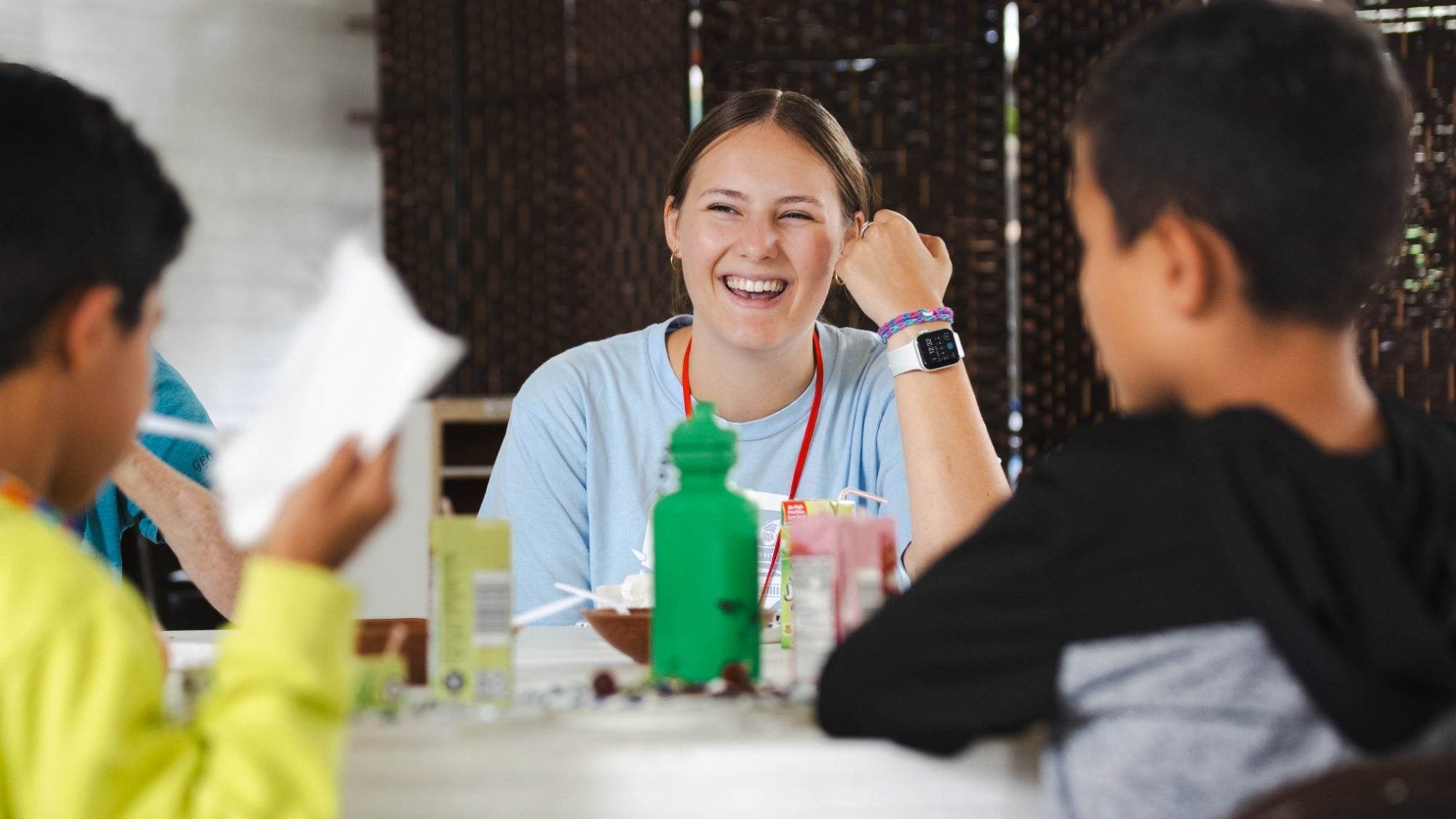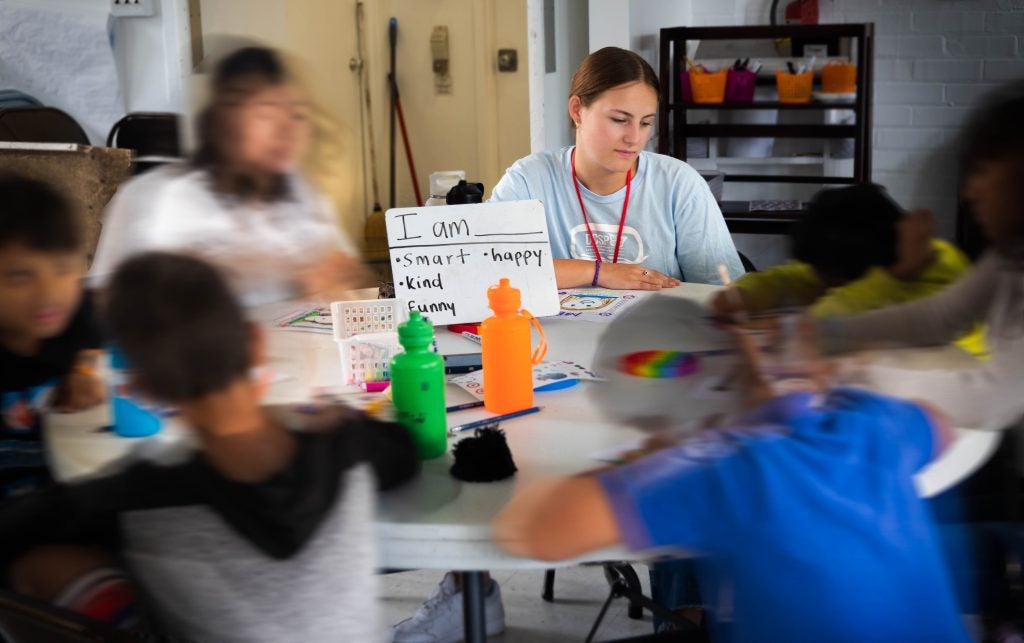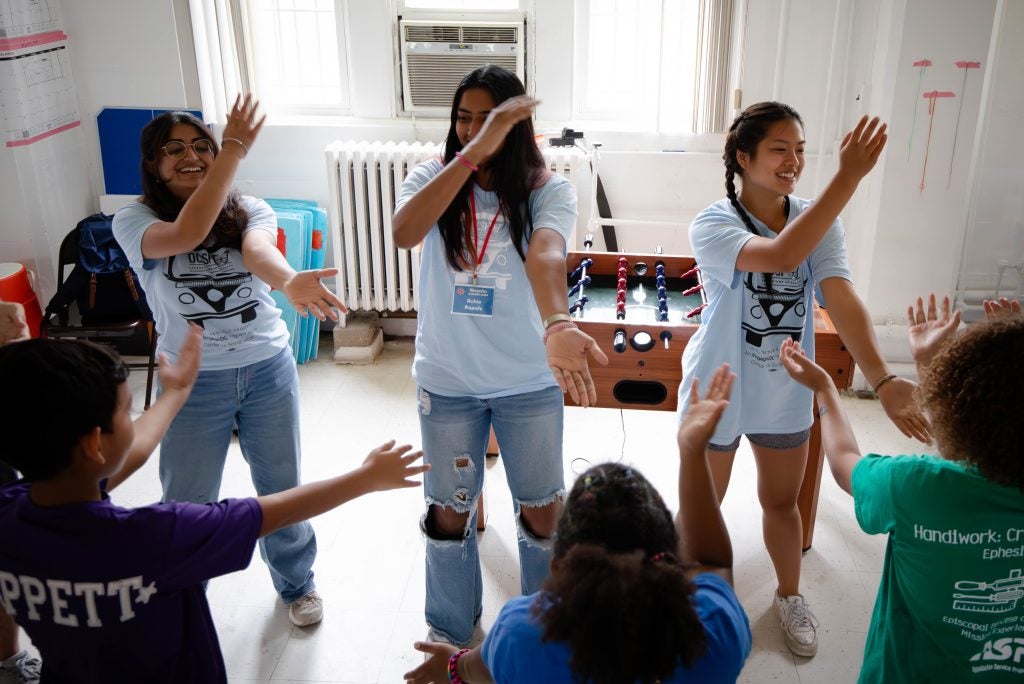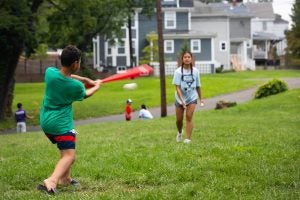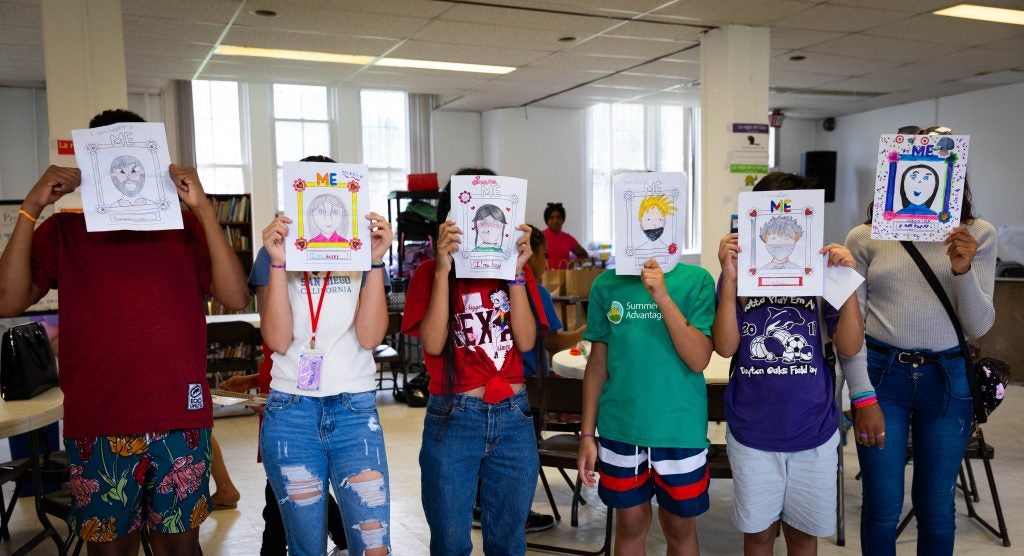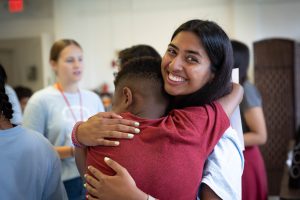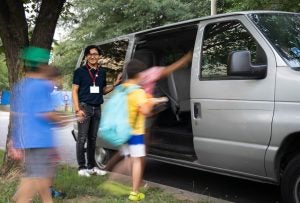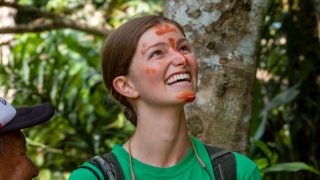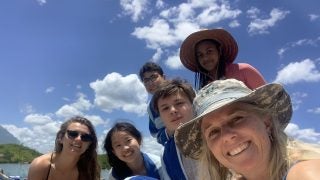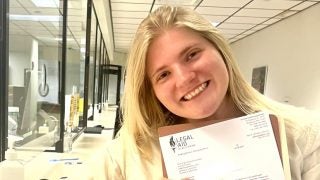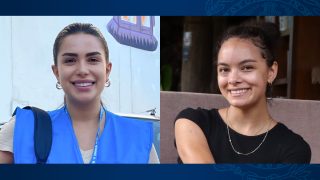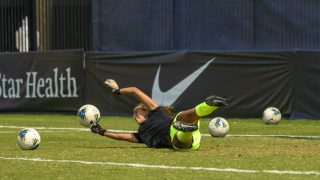The job description for Caroline Vail’s summer internship requires an unusual skill: She has to be able to navigate Washington DC’s narrow streets in a 12-passenger van.
And she’s not alone in the vehicle.
In tow with her are a gaggle of children on their way to a summer camp for migrant youth in northeast DC. Three days a week, Vail picks up campers from two hotels that serve as temporary shelters for migrants and brings them to a local church for camp.
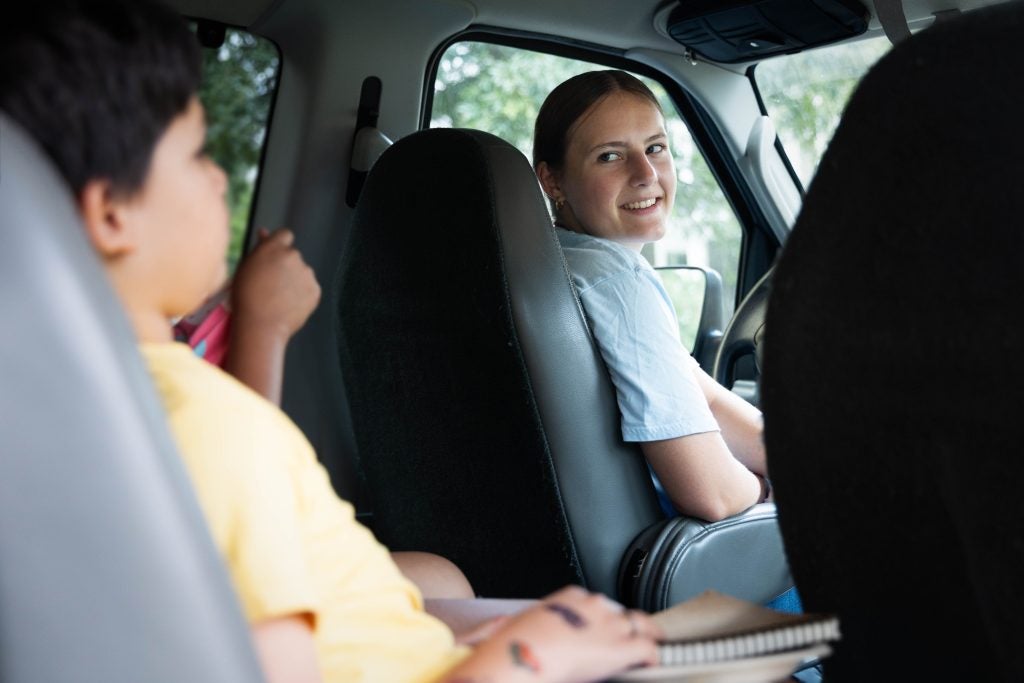
Vail’s van isn’t quiet, to say the least, as campers joke around and sing along to Spanish reggaeton music on full blast. The kids also never hesitate to “backseat drive,” Vail says, giving pointers in Spanish on how to get to camp the fastest way possible.
“The kids are so excited to see me and I’m so excited to see them,” she said. “This internship is so cool because it allows us to get immersed in the community in a way that just isn’t possible during the school year.”
Over the last few months, Vail has interned with the Summer Immigrant Rights and Advocacy (SIRA) Program through Georgetown’s Center for Social Justice (CSJ). Through SIRA, Vail and her fellow interns have helped migrant families move through the U.S. immigration system and provided their children with a safe space to be kids at camp. The internship is part of CSJ’s summer opportunities to offer tutoring and other programming in partnership with community organizations.
“Our goal is to help them feel a sense of community and belonging in a country they might not really see a home for themselves in,” said Jessica Lee, associate director for Immigrant Justice Initiatives at CSJ. “We want them to feel safer and more confident and comfortable learning English.”
As Vail and other SIRA interns discovered, the camp not only offered the interns an inside look into life as a migrant in the United States, but also created a space for the interns to learn from the children and migrant families as well.
Going Deeper With CSJ
Vail grew up witnessing the disparities in education access in her hometown of Charleston, South Carolina. With parents as educators, Vail was also drawn to pursuing a career in education, but she wanted to dig deeper and learn about education policy and the root causes behind inequality in the classroom.
Double majoring in linguistics and Spanish and Portuguese studies, Vail tacked on a minor in education, inquiry and justice. She wanted a way to put into practice what she was learning in the classroom and discovered the DC Schools Project, a CSJ program that for the last four decades has sent Hoyas into the community to provide English language tutoring to migrant youth.
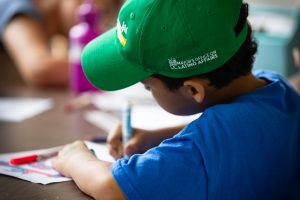
“The DC Schools Project was the program I was most interested in because it has an ESL (English as a Second Language) tutoring program and is tied to what I’m studying. It just seemed perfect for me,” she said. “I’ve done the program ever since then. I’ve never wanted to do anything else as my job on campus.”
Vail started out as a tutor over Zoom during the height of the COVID-19 pandemic and has gone on to tutor at different schools every semester. She’s since become a coordinator with the DC Schools Project, training new tutors and performing behind-the-scenes work that keeps the program of 110 tutors at nine different sites running. Last fall, CSJ began offering tutoring to migrant families, whom the governors of Arizona and Texas had sent to Washington, DC, in buses. The summer camp was a chance to extend the programming offered during the semester to families year-round.
Advocating for Migrant Families in DC
When it came time to search for an internship the summer before her senior year, the decision to continue her work with CSJ was an easy one.
In addition to spending time with and tutoring the children at camp, Vail and her fellow interns engage in advocacy and administrative work that help migrant families move through the legal process of their migration status. Their work supports the work of the Migrant Solidarity Mutual Aid Network (MSMAN), a network of organizations and volunteers in the DC area dedicated to supporting migrants in the region.
This includes following up with migrants on their asylum cases and change of venue applications, which, if approved, enable migrants to secure court dates in DC as opposed to the border states in which they first arrived.
SIRA interns also go to weekly respites coordinated by MSMAN, where students, alongside other volunteers, welcome new migrants arriving in DC by serving them meals, giving them a change of clothes and other essential supplies and transporting them to the hotels and other temporary lodging that are used as emergency shelter for migrants.
But at the heart of the internship is running a summer camp Tuesday through Thursday every week for migrant children, who hail primarily from Venezuela and Colombia.
Giving Migrant Youth a Safe Space at Summer Camp
Picking up the children in three vans each morning from their hotels, Vail and her fellow interns drive to the Church of Our Saviour in Brookland, which hosts the camp.
At camp, SIRA interns eat lunch with the campers, conversing in Spanish and sharing laughs over sandwiches and fresh fruit. In the afternoons, the interns and tutors, who are also Georgetown students, help the children practice their English and reinforce concepts they learned in morning programming. On their last day, they wrote self-affirmations to remind themselves of their capability of learning English in the year ahead.
